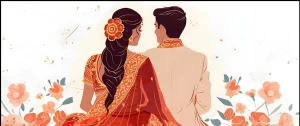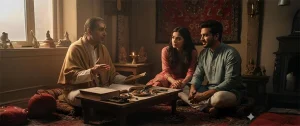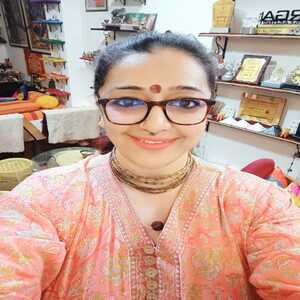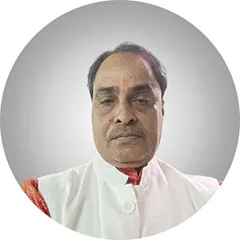Why Do People Trust Vedic Astrology for Marriage?
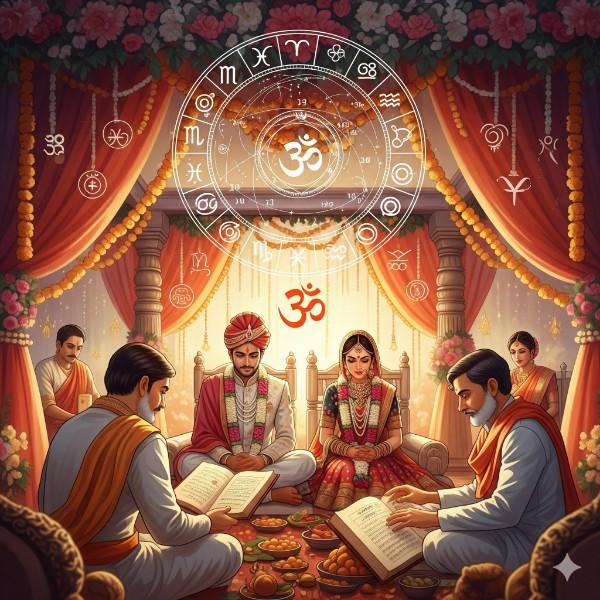
Choosing a life partner is arguably one of the most significant decisions a person will ever make. It’s a commitment that shapes our future, happiness, and overall well-being. In a world of dating apps and fleeting connections, millions in India and across the globe still turn to an ancient and profound system for guidance: Vedic Astrology for Marriage.
But what is it about this thousands-of-years-old practice that inspires such deep-seated trust? Is it mere tradition, or are there tangible, systematic elements that provide a sense of security and clarity?
The answer lies in its structured and multi-faceted approach. People don’t trust it blindly; they trust its specific, time-tested methodologies that go far beyond simple sun sign compatibility. Let’s explore the four foundational pillars of trust that make Vedic Astrology for Marriage an enduring guide for creating a harmonious and lasting union.
1. The Cornerstone of Trust: Kundli Matching (Ashtakoot Milan)
The single most trusted element of Vedic Astrology for marriage is the process of Kundli Matching, also known as Guna Milan or Ashtakoot Milan. This isn’t a vague prediction; it’s a systematic compatibility analysis based on the birth charts (Janam Kundali) of the prospective bride and groom.
A Kundli is a celestial map of the planets’ positions at the exact moment of a person’s birth. The core belief is that this map reveals our innate nature, karmic patterns, and psychological makeup. Kundli matching is essentially a process of overlaying these two maps to check for synergy and potential friction.
This process is built on the ‘Ashtakoot’ system, which analyzes eight different aspects of life, assigning points to each. These points, or Gunas, total 36. A score of 18 or above is generally considered acceptable for a harmonious marriage.
People trust this because it’s a tangible scoring system. The eight Kootas analyzed are:
- Varna Koota (1 Point): Assesses the spiritual and ego compatibility between partners.
- Vasya Koota (2 Points): Determines the power dynamics and mutual attraction or control in the relationship.
- Tara Koota (3 Points): Analyzes health, well-being, and destiny compatibility.
- Yoni Koota (4 Points): The most primal aspect, this measures the level of physical and sexual compatibility.
- Graha Maitri Koota (5 Points): Examines the mental compatibility and mutual friendship based on the lords of their Moon signs.
- Gana Koota (6 Points): Relates to the fundamental temperament and nature of the individuals (Deva, Manushya, or Rakshasa).
- Bhakoot Koota (7 Points): Crucial for assessing family welfare, health, and overall prosperity after marriage.
- Nadi Koota (8 Points): The most important Koota, it relates to genetics, health, and the potential for progeny. A mismatch here (Nadi Dosha) is considered a serious affliction.
This detailed, point-based system provides a logical framework that people can understand and trust, moving the analysis from a vague feeling to a structured report.
2. Identifying Celestial Red Flags: The Role of Mangal Dosha
Another major reason people trust Vedic Astrology for Marriage is its ability to act as an early warning system. It can identify specific planetary afflictions, known as Doshas, that may cause significant turmoil in a marriage. The most well-known of these is Mangal Dosha (or Kuja Dosha).
Mangal Dosha occurs when the planet Mars (Mangal), a planet of fire, energy, aggression, and conflict, is placed in the 1st, 4th, 7th, 8th, or 12th house of a person’s birth chart. The presence of this Dosha in one partner’s chart can indicate a potential for arguments, discord, and, in severe cases, separation or health issues for the other partner.
However, the trust comes from the fact that astrology also provides a solution. If both partners have Mangal Dosha, it is believed to cancel out the negative effects. This is why families specifically look for partners with a similar Dosha. It’s a trusted method of risk mitigation, ensuring that two similarly intense energies can coexist harmoniously rather than clash destructively. This proactive identification and mitigation of a major potential problem is a key reason for its enduring relevance.
3. A Glimpse into the Future: Dasha and Planetary Timings
Vedic astrology’s role doesn’t end after the compatibility check. People also trust it for its ability to provide a long-term roadmap of the marital journey. This is done through the analysis of the Vimshottari Dasha system and planetary transits.
The Dasha system shows which planetary period a person is running at any given time. A skilled astrologer can analyze the Dashas of both partners to see:
- Timing of Marriage: When are the planets aligned to favor marriage?
- Progeny: When are the most fertile periods for childbirth?
- Financial Prosperity: Will the couple’s combined destiny lead to financial growth?
- Challenging Periods: Are there upcoming planetary periods that might bring stress, health issues, or conflict into the marriage?
By understanding these timelines, couples can be better prepared to navigate their life together. This forward-looking guidance provides a deep sense of security, showing that the astrological analysis is not just about the wedding day but about the entire lifetime that follows.
Also Try : Marriage Calculator- Prediction By Date of Birth
4. Beyond Prediction: The Power of Astrological Remedies (Upayas)
Finally, trust in Vedic astrology is solidified by the fact that it is a solutions-oriented science. It doesn’t just point out problems; it offers a path to resolve them through Upayas, or remedies.
If a Kundli match is low, or if a significant Dosha is present, an astrologer will almost always suggest remedies to mitigate the negative effects. This is a crucial aspect of trust because it empowers the couple, giving them agency over their destiny.
These remedies can range from:
- Pujas and Homas: Specific rituals and fire ceremonies to pacify malefic planets.
- Gemstone Therapy: Wearing specific gemstones to strengthen benefic planets.
- Mantras and Chanting: Reciting specific sacred sounds to create a positive vibrational energy.
- Charity (Daan): Donating specific items on specific days to appease planetary energies.
The existence of these remedies means that an astrological reading is not a final judgment but a diagnostic tool. It gives couples a chance to heal the cosmic imbalances in their charts, reinforcing the belief that with the right guidance and effort, a happy and successful marriage is possible.
In conclusion, the trust people place in Vedic Astrology for Marriage is not based on blind faith. It is built on a systematic approach to compatibility (Guna Milan), a logical method for identifying risks (Dosha Analysis), a practical guide for future planning (Dasha System), and an empowering set of solutions (Remedies). It is a holistic science that offers a language to understand the deepest karmic connections between two people, providing a celestial roadmap for one of life’s most sacred journeys.

